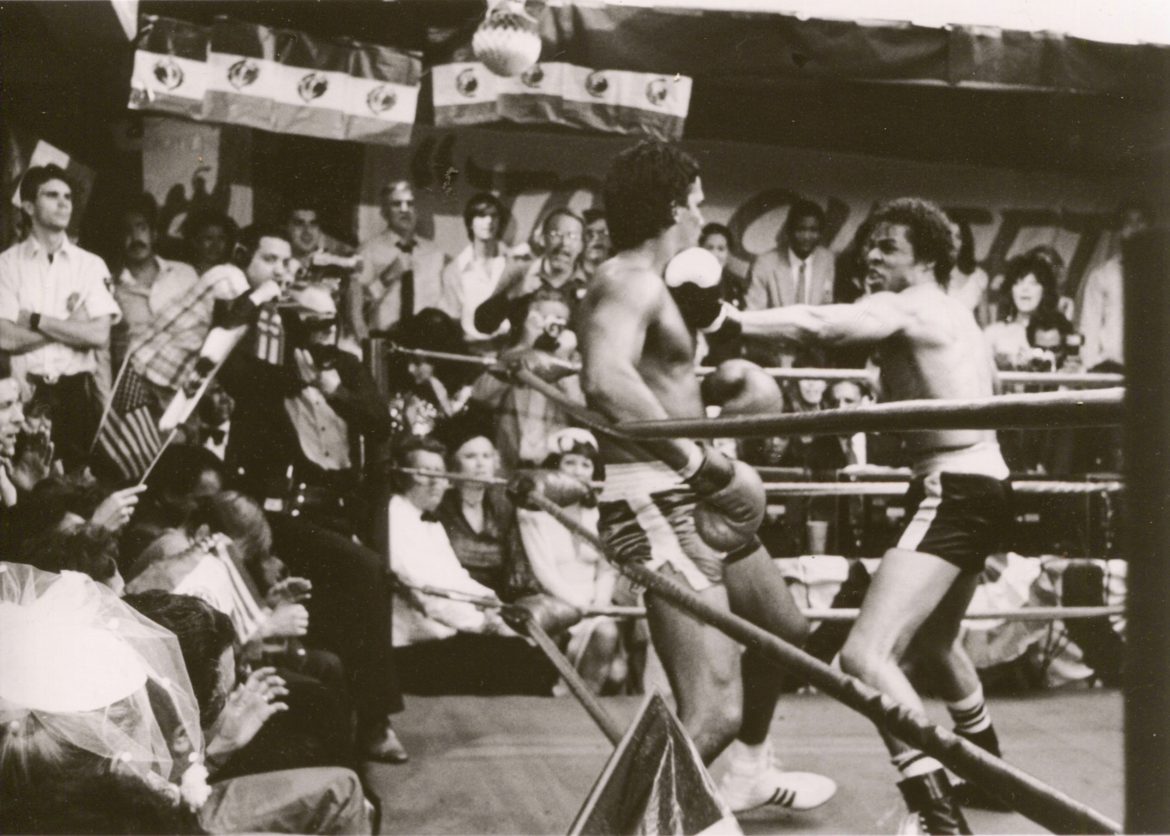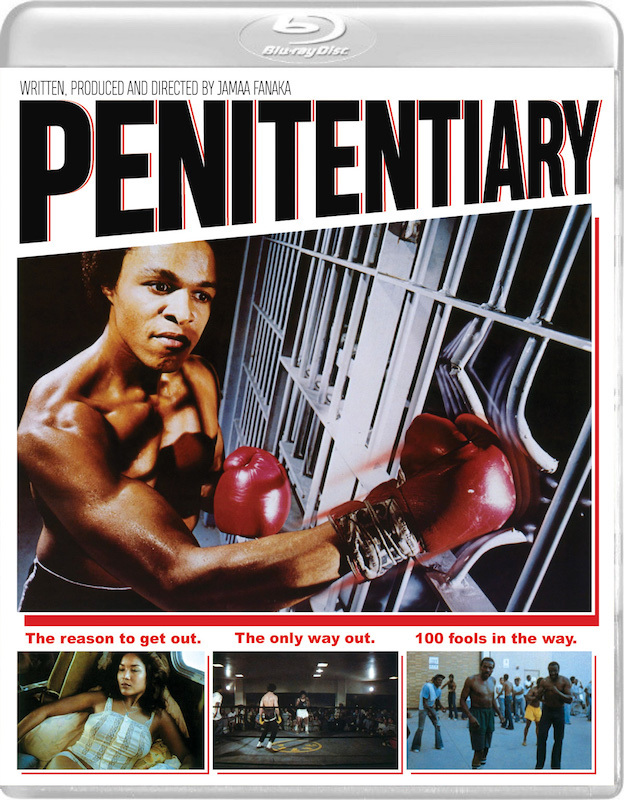
Remember when action movies were fun- not digital effects, fast editing and deafening sound? This thought came to mind while watching the new “Limited Edition” Blu-ray from Vinegar Syndrome of the great soul prison flick Penitentiary (1979), one of the high points in the short but outrageous career of African American director Jamaa Fanaka. I vividly remember seeing Penitentiary in one of the scariest theaters in Baltimore. Handsome former Cleveland disc jockey Leon Isaac Kennedy starred as Martel “Too Sweet” Gordone, a man wrongfully imprisoned and thrown into a hellhole of a jail filled with inmates named “Half Dead”, “Seldom Seen” and “Hi Fi”. Too Sweet befriends an old trainer and ends up boxing his way to freedom by performing for the prison guards in staged bouts. The movie whipped the crowd into such a frenzy that audience members were tearing up the seats as I dashed for the exit.
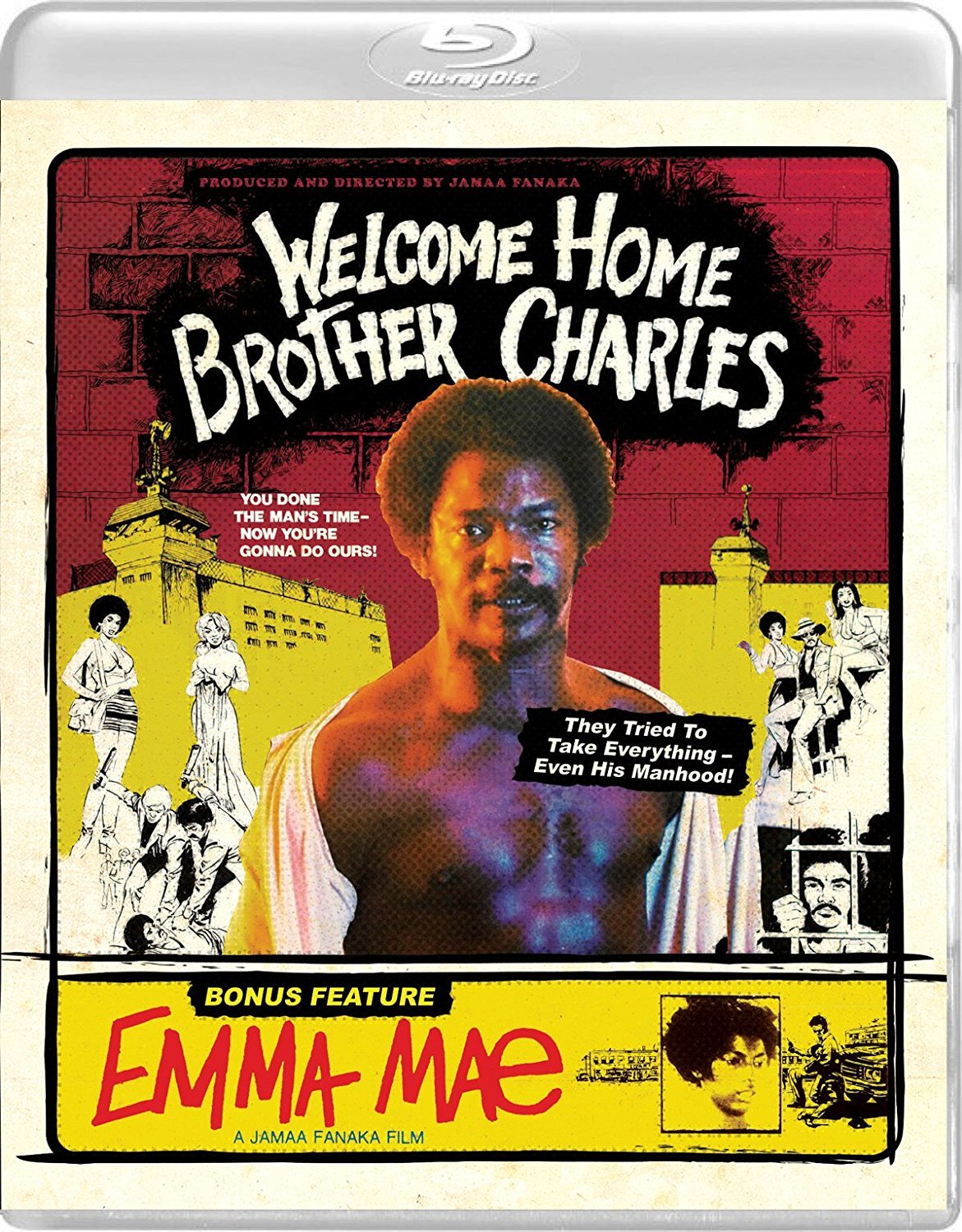
Fanaka made two other films besides Penitentiary while attending UCLA, which he credits for being very supportive. His first- Welcome Home Brother Charles (1976) (AKA: Soul Vengeance) was about a drug dealer/pimp named Charles (Marlo Monte), arrested and near castrated by a racist cop. Charles undergoes some sort of mystical transformation in prison, and upon release he exacts revenge by strangling all the people who wronged him with his penis. You have to wait almost 1 hour and 20 min. but then you do get to see his demon dick snake across the floor and wrap around the neck of the creepy white district attorney in his bathrobe. “His penis has grown to frightening limits!” declares a doctor in this jaw dropper.
Emma Mae (aka Black Sister’s Revenge) (1975) was Fanaka’s Master Thesis and partially funded by the American Film Institute. It stars Jerri Hayes as Mississippi country cousin Emma Mae who comes to stay with relatives in Compton and learns the ways of the big city in no time. She coldcocks a man with one punch screaming: “Come on you doodlebug!” and robs a bank to pay her low life boyfriend Jesse’s (Ernest Williams II) lawyer fees. There’s lots of snappy dialogue, 70s fashion; and a character named “Big Daddy” Johnson (Malik Carter) who wears an Arab sheik headdress and rails against “white people” (a common gripe in Fanaka’s films).
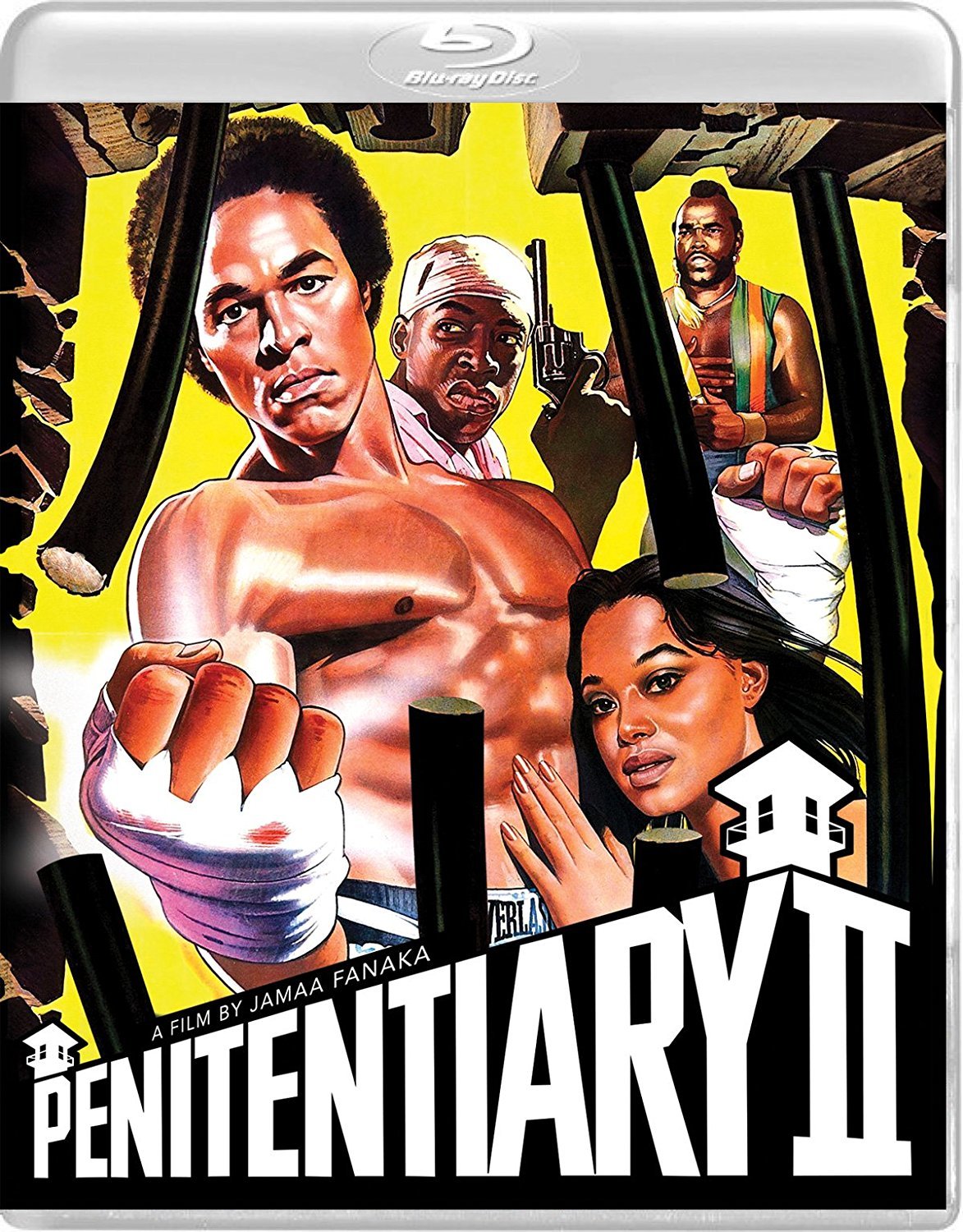
“It’s a blessing to be able to make a film no matter how good or bad it turns out,” says director Fanaka on the audio commentary of Penitentiary II (1982), the rousing sequel to his box office smash. This one stars Ernie Hudson as the villainous Half Dead, Mr. T in a genie outfit as the boxing trainer and a cameo by comic legend Rudy Ray Moore.
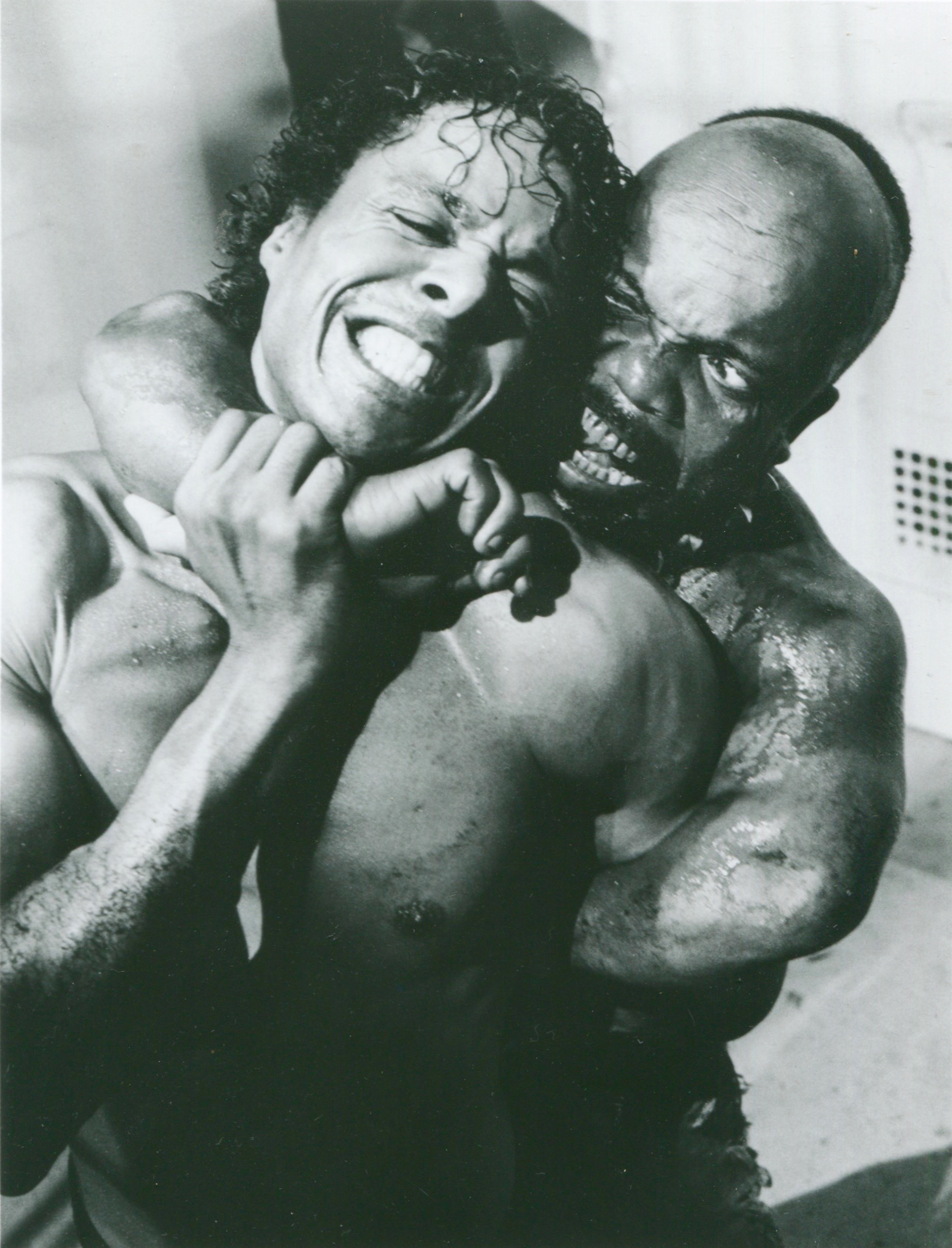
But Fanaka’s loony masterpiece is Penitentiary III (1987) with General Hospital heartthrob “Luke” Anthony Geary playing a gravel-voiced, platinum-haired, gangster named Serenghetti who rules the prison from his plush, private, cell. Female “illusionist” Jim Bailey appears in full drag as his roommate Cleopatra. There’s even a martial-arts-fighting dwarf called the Midnight Thud (Raymond Kessler aka the “Haiti Kid”) who blows crack smoke at a rat in his cell and watches as it keels over dead.
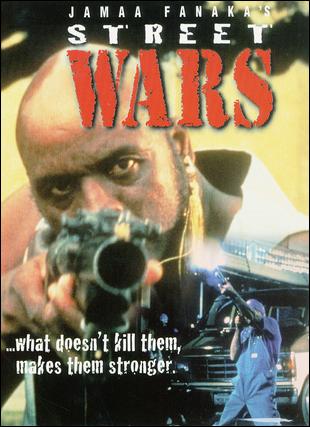
In Street Wars (1992), baby-faced, pretty-boy, Alan Joseph stars as “Sugarpop”, a 17-year-old Top Gun aviator at Exeter Military Academy who arrives home on his jet-propelled motor scooter to avenge the death of his drug czar big brother Frank (Bryan O’Dell). Sugarpop takes over the Muslim Round Table and trains ghetto commandos to fly glider-like recreational planes outfitted with machine guns and then blasts away at crack houses. The supporting characters are as nuts as the plot- there’s Ma Gram (Jean Pace) the Rick James-lookalike grandmother, characters named Frenchfry, Neckbone, Humongous; and a pistol-packing drag queen named Christy (Vaughn Cromwell) who proclaims: “I happen to be a proud homo-sex-child.” Cartoonish shootouts; Nation of Islam spokesperson Khalid Muhammad in a cameo equating the white man with the devil and a rap dance called The Rooster all make for a Boyz n the Hood on lots of hallucinogens.
In the old days, up-and-coming African American filmmakers cut their teeth on action fare that really connected with audiences. Fanaka used these genre movies to slip in his politics plus his anger, humanity, and humor. Fanaka was one of the few black members of the Directors Guild Of America and brought a series of class-action lawsuits against the guild which possibly hampered his movie career. At the time of his death in 2012 at age 69 he was working on a documentary on hip-hop culture. Thanks to Vinegar Syndrome four of his films are finally restored (many from their negatives) and will inspire future generations with this true maverick filmmaker’s daring and subversively entertaining films.

